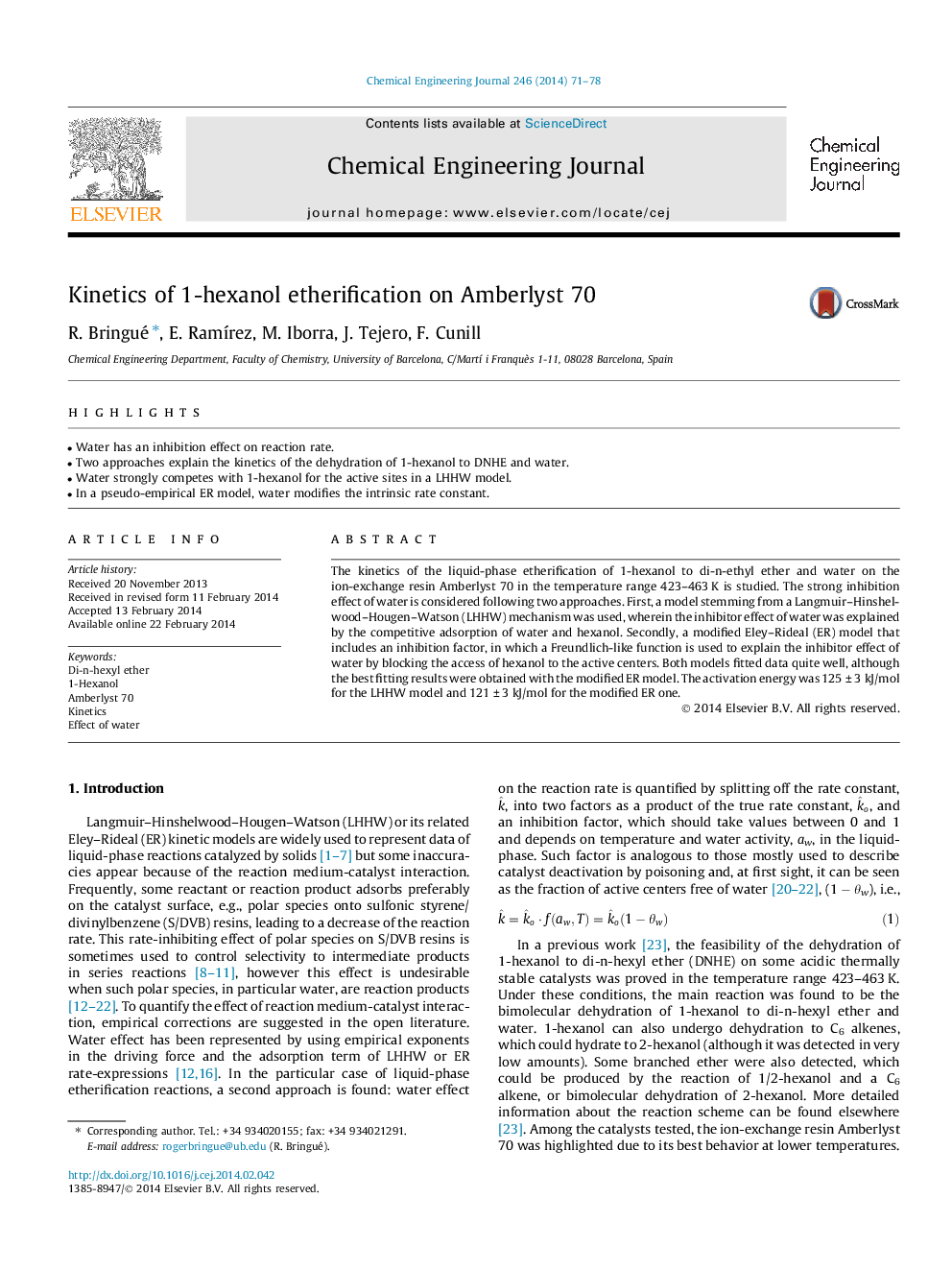| کد مقاله | کد نشریه | سال انتشار | مقاله انگلیسی | نسخه تمام متن |
|---|---|---|---|---|
| 147835 | 456400 | 2014 | 8 صفحه PDF | دانلود رایگان |

• Water has an inhibition effect on reaction rate.
• Two approaches explain the kinetics of the dehydration of 1-hexanol to DNHE and water.
• Water strongly competes with 1-hexanol for the active sites in a LHHW model.
• In a pseudo-empirical ER model, water modifies the intrinsic rate constant.
The kinetics of the liquid-phase etherification of 1-hexanol to di-n-ethyl ether and water on the ion-exchange resin Amberlyst 70 in the temperature range 423–463 K is studied. The strong inhibition effect of water is considered following two approaches. First, a model stemming from a Langmuir–Hinshelwood–Hougen–Watson (LHHW) mechanism was used, wherein the inhibitor effect of water was explained by the competitive adsorption of water and hexanol. Secondly, a modified Eley–Rideal (ER) model that includes an inhibition factor, in which a Freundlich-like function is used to explain the inhibitor effect of water by blocking the access of hexanol to the active centers. Both models fitted data quite well, although the best fitting results were obtained with the modified ER model. The activation energy was 125 ± 3 kJ/mol for the LHHW model and 121 ± 3 kJ/mol for the modified ER one.
Journal: Chemical Engineering Journal - Volume 246, 15 June 2014, Pages 71–78